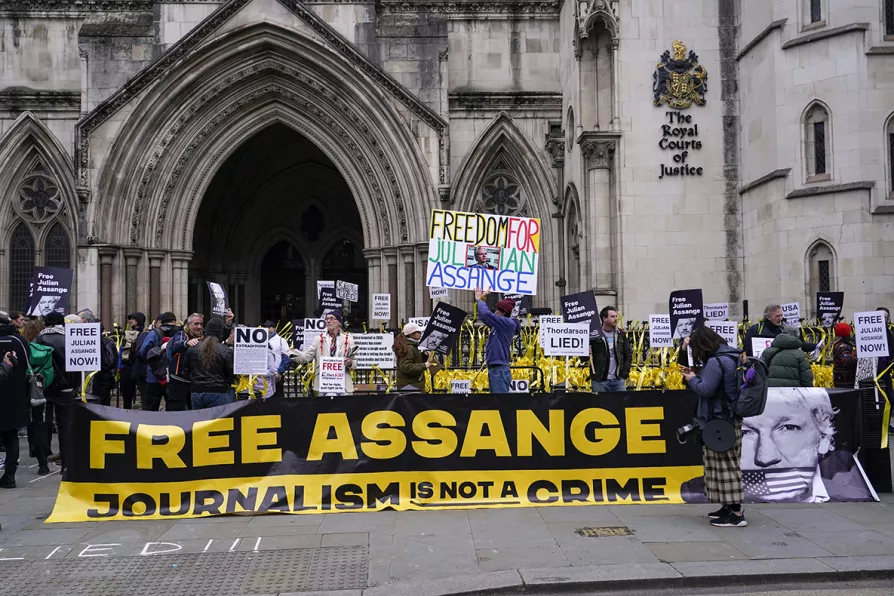US's extradition of Assange is politically motivated and illegal, High Court hears

 Demonstrators hold banners outside the Royal Courts of Justice in London, February 20, 2024
Demonstrators hold banners outside the Royal Courts of Justice in London, February 20, 2024
THE United States’ attempted extradition of Julian Assange is politically motivated and illegal, the High Court heard today.
The final trial against sending the Wikileaks founder and journalist, who was too unwell to attend court or even participate by video link, to the US began today.
Those close to him report growing concern over his health since he broke a rib during a coughing fit over Christmas.
Similar stories
![[Pic: Andrew Wiard]]( https://msd11.gn.apc.org/sites/default/files/styles/low_resolution/public/2026-01/19860330_a_wiard_0001JPG.jpg.webp?itok=F659dJUa)
As advertising drains away, newsrooms shrink and local papers disappear, MIKE WAYNE argues that the market model for news is broken – and that public-interest alternatives, rooted in democratic accountability, are more necessary than ever

Campaign group’s legal challenge against decision to approve proposals dismissed











